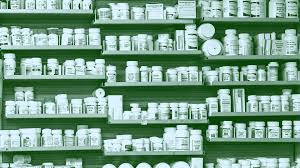
Breaking News
 FDA Chief Says No Solid Evidence Supporting Hepatitis B Vaccine At Birth
FDA Chief Says No Solid Evidence Supporting Hepatitis B Vaccine At Birth
Evergreen, Colorado: Another Killing Zone in America
 Trump Cryptically Writes "Here We Go!" In Reaction To Russia-Poland Drone Incident, Oil Sp
Trump Cryptically Writes "Here We Go!" In Reaction To Russia-Poland Drone Incident, Oil Sp
 Qatar Says It Reserves Right To Retaliate Against 'Barbaric' Netanyahu
Qatar Says It Reserves Right To Retaliate Against 'Barbaric' Netanyahu
Top Tech News
 Methylene chloride (CH2Cl?) and acetone (C?H?O) create a powerful paint remover...
Methylene chloride (CH2Cl?) and acetone (C?H?O) create a powerful paint remover...
 Engineer Builds His Own X-Ray After Hospital Charges Him $69K
Engineer Builds His Own X-Ray After Hospital Charges Him $69K
 Researchers create 2D nanomaterials with up to nine metals for extreme conditions
Researchers create 2D nanomaterials with up to nine metals for extreme conditions
 The Evolution of Electric Motors: From Bulky to Lightweight, Efficient Powerhouses
The Evolution of Electric Motors: From Bulky to Lightweight, Efficient Powerhouses
 3D-Printing 'Glue Gun' Can Repair Bone Fractures During Surgery Filling-in the Gaps Around..
3D-Printing 'Glue Gun' Can Repair Bone Fractures During Surgery Filling-in the Gaps Around..
 Kevlar-like EV battery material dissolves after use to recycle itself
Kevlar-like EV battery material dissolves after use to recycle itself
 Laser connects plane and satellite in breakthrough air-to-space link
Laser connects plane and satellite in breakthrough air-to-space link
 Lucid Motors' World-Leading Electric Powertrain Breakdown with Emad Dlala and Eric Bach
Lucid Motors' World-Leading Electric Powertrain Breakdown with Emad Dlala and Eric Bach
 Murder, UFOs & Antigravity Tech -- What's Really Happening at Huntsville, Alabama's Space Po
Murder, UFOs & Antigravity Tech -- What's Really Happening at Huntsville, Alabama's Space Po
Trump Announces Crackdown On Drug Ads On TV, Potentially Disrupting Billions In Ad Spending

After all, it's just the US and New Zealand that still allow pharma ads to fund what are largely extremely liberal cable TV stations: why not help US health at the grass roots level by pulling back on the US addiction with, well, drug addiction. And if the Trump admin can put much of the liberal mainstream media out of business for selling snake oil - in some cases literally - even better.
And while we didn't expect our lament to generate any traction, we were very surprised to learn that late on Tuesday, the Trump admin announced a crackdown on pharmaceutical advertising on television and social media platforms, potentially disrupting billions of dollars in annual ad spending.
President Trump signed a presidential memorandum on Tuesday that calls on federal health agencies to require pharmaceutical companies to disclose more side effects in their ads and enforce existing rules about misleading ads. The administration is pitching the moves as a way to increase transparency for patients, and while it is not an outright ban as many had hoped for, it is a start, and it will certainly had an adverse effect as drug makers scramble to avoid penalties and sanctions.
As noted above, the US is the only place, besides New Zealand, where pharma companies can directly advertise to consumers. Limiting pharmaceutical advertisements has been a longtime priority for HHS Secretary Robert F. Kennedy Jr., though the new regulations would stop short of banning the ads entirely.
But, as Bloomberg notes, even adding stricter requirements to the ads will likely hit both pharmaceutical companies and the media companies that rely extensively on those advertising dollars.
Drug companies spent $10.8 billion in 2024 on direct-to-consumer pharmaceutical advertising in total, according to a report from the advertising data firm MediaRadar. AbbVie, Glaxo and Pfizer were particularly big spenders. AbbVie alone spent $2 billion on direct-to-consumer drug ads last year, primarily on advertising for the company's anti-inflammatory drugs Skyrizi and Rinvoq. The medicines brought in more than $6.5 billion for AbbVie in the second quarter of 2025.
Aside from new regulations, the agencies also plan to more strictly enforce existing rules around misleading advertising.
"The FDA is sending approximately 100 enforcement action letters today and thousands of letters warning the industry, including online pharmacies, who have increasingly been promoting drugs with no mention of side effects at all," FDA Commissioner Marty Makary said in a video posted on social media Tuesday.

 Tiny briefcase engine boosts EV range beyond battery power
Tiny briefcase engine boosts EV range beyond battery power 

